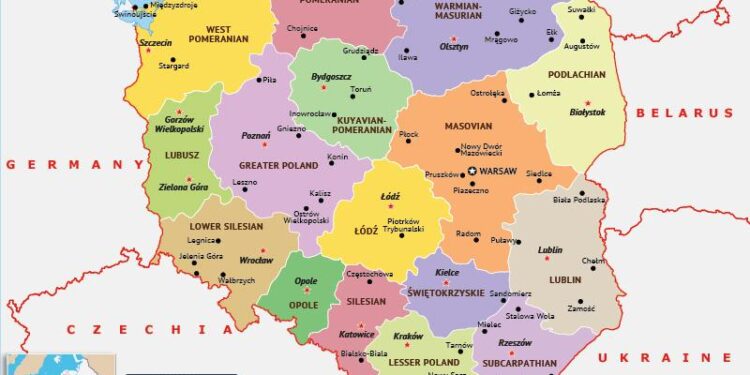Poland has experienced a decline in the latest international university rankings, with only seven of its institutions making it into the top 1,000. This marks a notable shift for the country’s higher education landscape, highlighting growing challenges amid increased global competition. The recent rankings, closely watched by academics and policymakers alike, offer a critical snapshot of Poland’s position on the world stage and underscore the urgent need for strategic improvements in its university sector.
Poland Experiences Decline in Global University Rankings Amid Increased Competition
Polish universities have encountered a noticeable setback in this year’s global education rankings, with only seven institutions managing to secure spots within the top 1,000 worldwide. This marks a slight dip compared to previous years, highlighting growing challenges as international academic competition intensifies. Experts link the slide to both increased investment in higher education by other countries and shifting metrics that place greater emphasis on research output and global engagement.
Key observations from the latest rankings include:
- Warsaw University of Technology remains the highest-ranked Polish institution but has dropped by several positions.
- Universities in neighboring countries, such as the Czech Republic and Hungary, have gained ground through strategic international collaborations.
- Polish universities continue to excel in areas like engineering but lag behind in global research citations and international faculty presence.
| University | Current Rank | Previous Rank | Change |
|---|---|---|---|
| Warsaw University of Technology | 412 | 398 | ‚ąí14 |
| Jagiellonian University | 483 | 470 | ‚ąí13 |
| University of Warsaw | 560 | 550 | ‚ąí10 |
Analysis of Key Factors Behind the Slide in Poland’s Higher Education Performance
Several critical elements have contributed to Poland’s recent drop in higher education standings. Funding constraints remain a significant barrier, with government investments in research and development failing to keep pace with inflation and rising operational costs. This underfunding has translated into reduced resources for innovation, infrastructure upgrades, and attracting top faculty talent. Additionally, the brain drain phenomenon has accelerated, as many promising academics and students seek opportunities abroad, often in Western Europe or North America, drawn by better salaries and research facilities.
Moreover, systemic issues within university administration and curriculum modernization have hampered progress. While other nations increasingly prioritize interdisciplinary research and international collaboration, many Polish institutions struggle to adapt quickly. The lack of sufficient international partnerships and low engagement in global academic networks reduce visibility and citation impact – two key metrics in global rankings. Below is a summary of critical factors influencing these trends:
| Factor | Impact |
|---|---|
| Funding Limitations | Stagnant growth in research budgets leads to fewer innovations. |
| Brain Drain | Loss of top talent diminishes academic competitiveness. |
| Administrative Inertia | Delayed curriculum reforms reduce global engagement. |
| International Collaboration | Limited partnerships weaken global research impact. |
Strategic Recommendations for Polish Universities to Regain International Standing
To reverse the downward trend in global rankings, Polish universities must prioritize international collaboration and research innovation. Strengthening ties with leading academic institutions worldwide will facilitate knowledge exchange and elevate the quality of research output. Polish institutions should also invest in cutting-edge infrastructure to support interdisciplinary projects, enabling breakthroughs that can compete at an international level.
Moreover, targeted strategies focusing on improving the global visibility of Polish universities are crucial. This includes:
- Enhancing publication in high-impact journals with English-language accessibility
- Encouraging faculty and students to engage in prestigious international conferences
- Expanding scholarship programs to attract diverse global talent
- Implementing transparent metrics that benchmark performance against top global universities
| Recommendation | Expected Impact | Timeframe |
|---|---|---|
| International Research Partnerships | Higher citation impact | 3-5 years |
| Increased English Publications | Broader academic reach | 2-4 years |
| Global Talent Scholarships | Diverse student body and innovation | 1-3 years |
Insights and Conclusions
Poland’s slip in the latest international university rankings, despite having seven institutions within the top 1,000, highlights ongoing challenges in the country’s higher education sector. As global competition intensifies, stakeholders will need to focus on enhancing research output, faculty development, and international collaboration to reverse the downward trend. The coming years will be critical for Polish universities seeking to bolster their global standing and attract top talent.
















